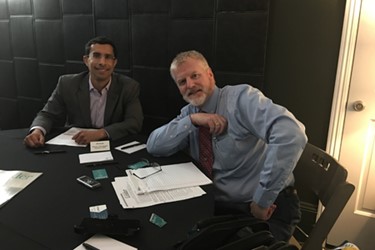3 Valuable Lessons Learned By A First-Time Entrepreneur

By Rob Wright, Chief Editor, Life Science Leader
Follow Me On Twitter @RfwrightLSL

Bassil Dahiyat, Ph.D., is president and CEO of Xencor, a publicly traded biotech currently valued at over $1.8 billion (to be featured in Life Science Leader’s July issue). Given he’s been running this company since he founded it right out of grad school in 1997, he says many of the lessons he has learned have come the hard way. For example, in the early days he looked to hire people who had the same scientific knowledge as he did, thinking this would be the fastest way to get the company going. But he soon learned the fallacy of such thinking. “If you hire people who only know what you know, then they can do only what you can do,” he explains. Thus, one of the early lessons Dahiyat learned was the importance of hiring people with industry experience. “Don’t just assume those smart, hardworking people will be able to figure out everything because you did, and they come from similar backgrounds,” he cautions. “Sure, they might figure out whatever problem you’re having, but if they make too many mistakes along the way or take too long, you might run out of money first.” Whether it’s making proteins in a lab, doing biological tests, prepping for pre-clinical development, or doing business development, Dahiyat advises first-time entrepreneurs to hire people experienced in whatever it is you initially need them to do.
Understanding your target audience was another valuable lesson he learned. After some initial failures with understanding what products their target clients wanted, Xencor started focusing on the needs of researchers responsible for building new drug molecules. Dahiyat says the best way to learn about your market is one handshake at a time. “It takes years of networking, which was actually another valuable lesson I had to figure out pretty fast,” he shares.
During his first year, the executive says he went to any conference where he thought people from biotech might be. “I talked to anybody I could, asked what they were working on and gave them my card,” he says. Afterwards, he’d follow up with an email. “They probably won’t respond, but odds are you’ll run into them again, and when you shake their hand, they’ll likely remember you, maybe even feel a little guilty.” Dahiyat says that even if you haven’t done anything but meet these people at a conference, talk for three minutes and shake hands, you still become friends, and friends can introduce you to more people. “The importance of networking cannot be overstated,” he concludes.
